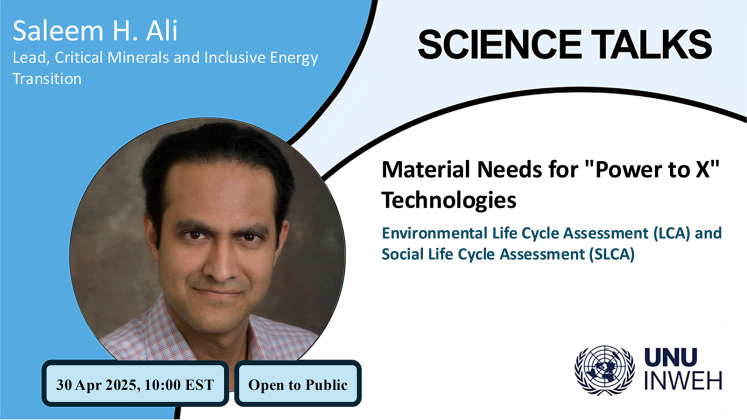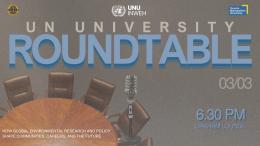The world’s transition from a fossil-fuel-driven society to a future net-zero or negative carbon dioxide emission society will require a significant scale-up of Power-to-X technologies to capture and convert CO2 to low carbon intensity fuels and chemicals. The deployment of Power-to-X technologies at gigawatt scales necessary to impact on CO2 emissions and replace existing fossil-fuel-dependent processes will require vast quantities of raw materials and minerals. Many of the materials required in Power-to-X systems, such as rare earth metal yttrium and iridium, differ from those used to construct and operate petroleum-hydrocarbon-based processes for the last 100 years. Thus, electrolyzer manufacturers and mineral producers face significant challenges in matching supply to the growing demand.
In this Science Talk, Prof. Saleem Ali will discuss critical materials needed for Power-to-X electrolyzers and analyze the impacts and risks of these materials' existing global supply chains. The talk will also provide an overview of methodologies for Environmental Life Cycle Assessment (LCA) and Social Life Cycle Assessment (SLCA), emphasizing the importance of integrating life cycle thinking early in the research and development process. Prof. Ali will highlight how these assessments can help evaluate the socio-environmental impacts of Power-to-X technologies throughout their entire life cycle—from raw material extraction and processing to manufacturing, use, and end-of-life disposal. By advocating for an informed, just, and ethical approach to the development of disruptive technologies, Prof. Ali will emphasize the urgent need for responsible resource management to ensure the long-term sustainability and scalability of Power-to-X systems.
Speaker

Professor Saleem H. Ali
Lead, Critical Minerals and Inclusive Energy Transition






